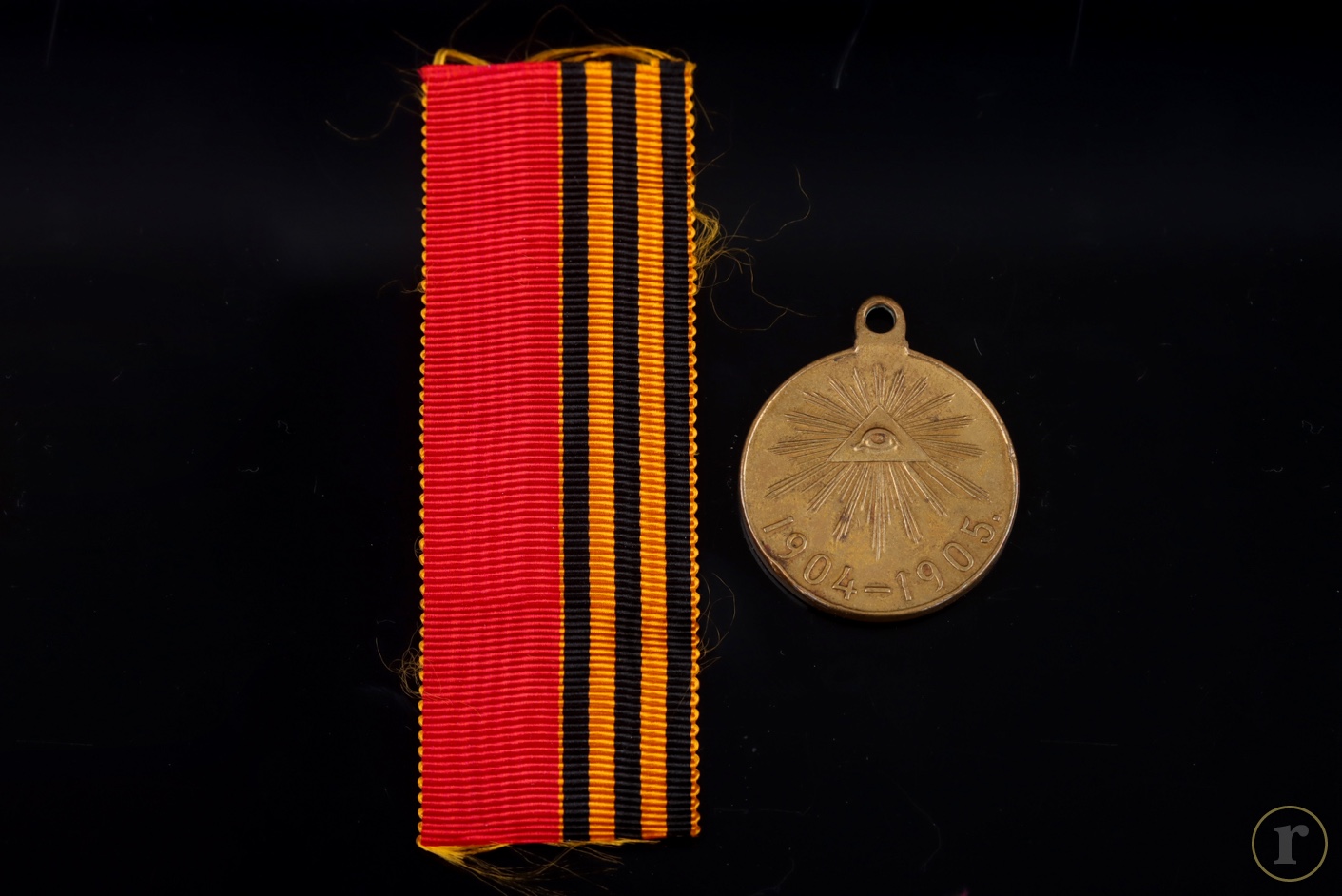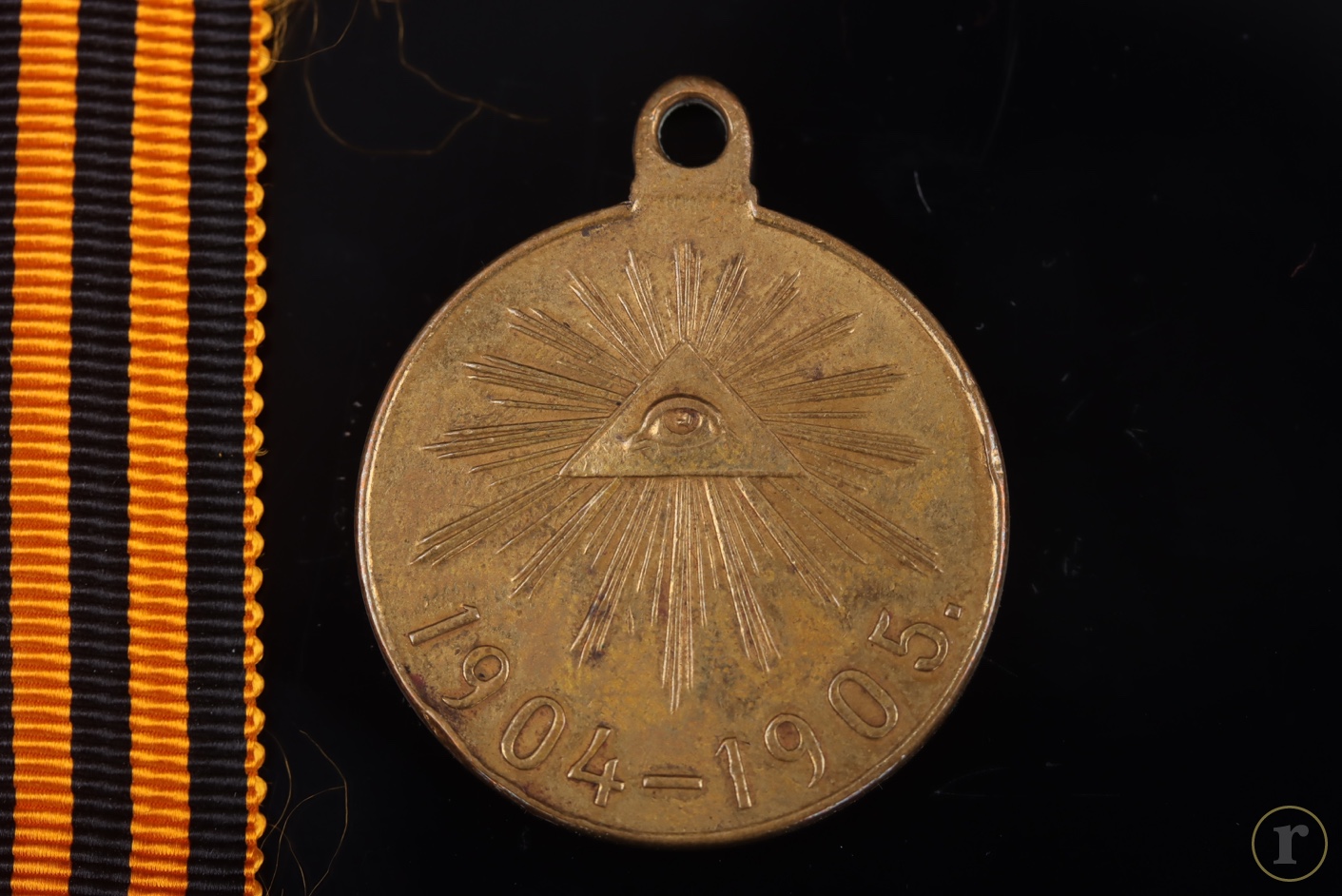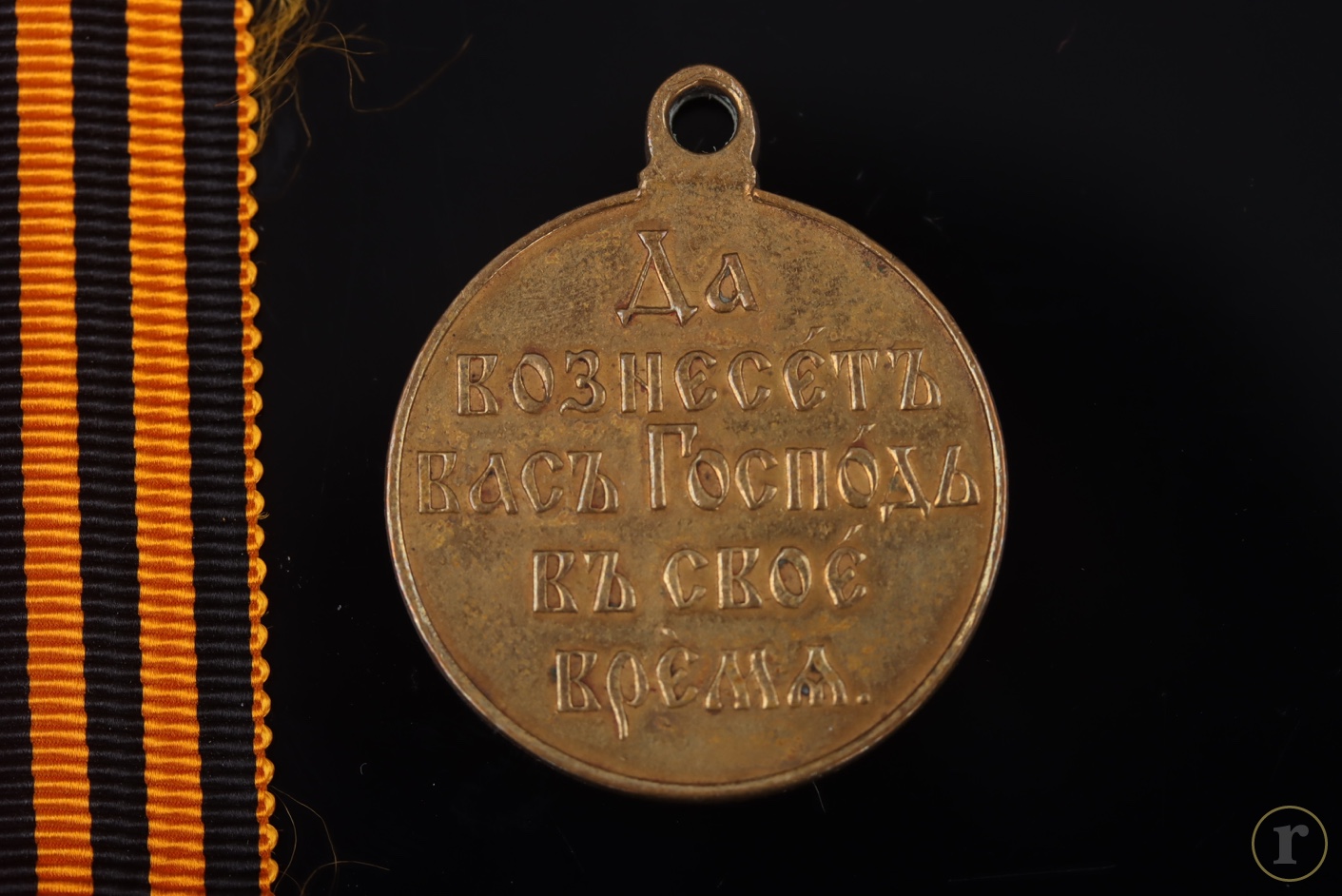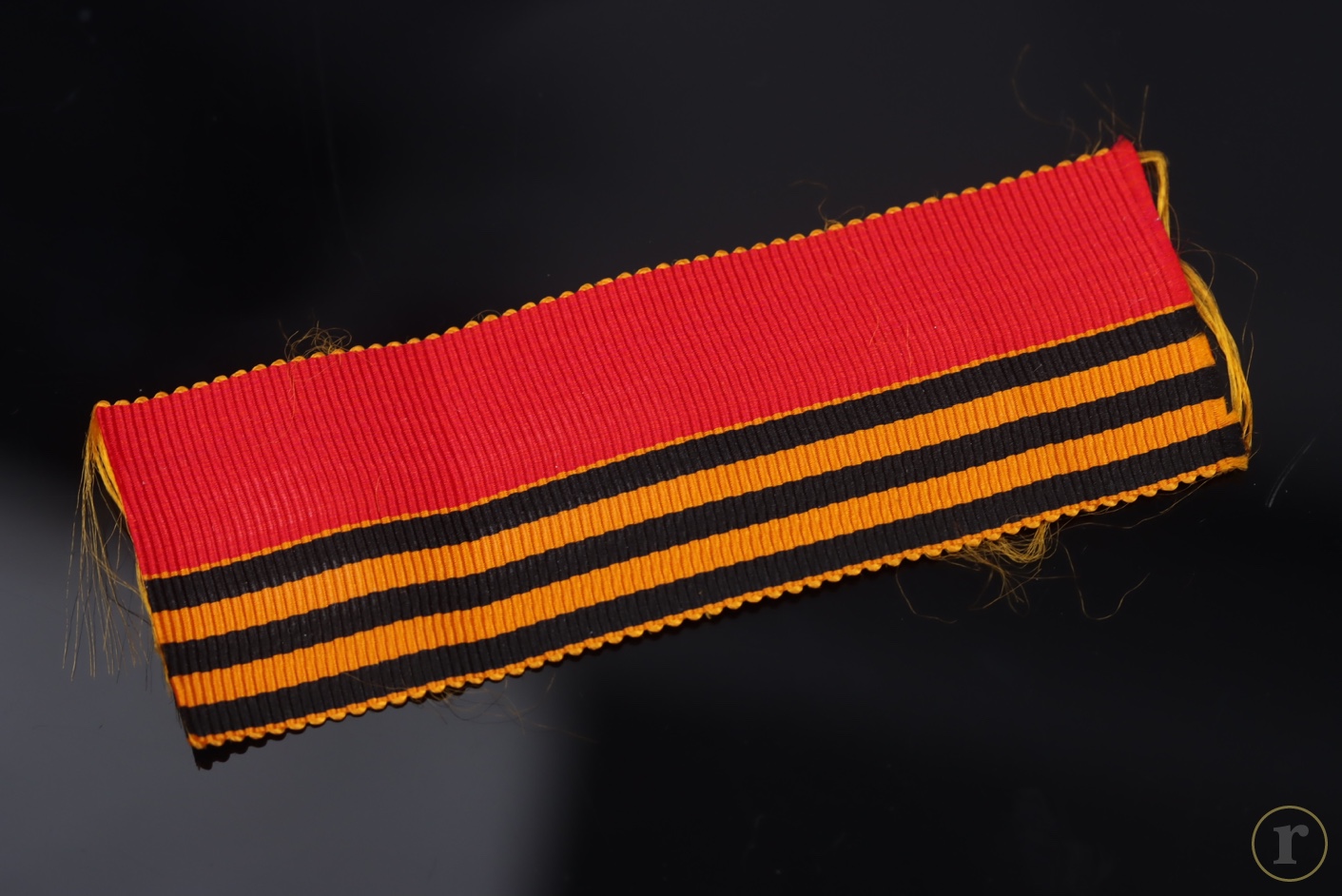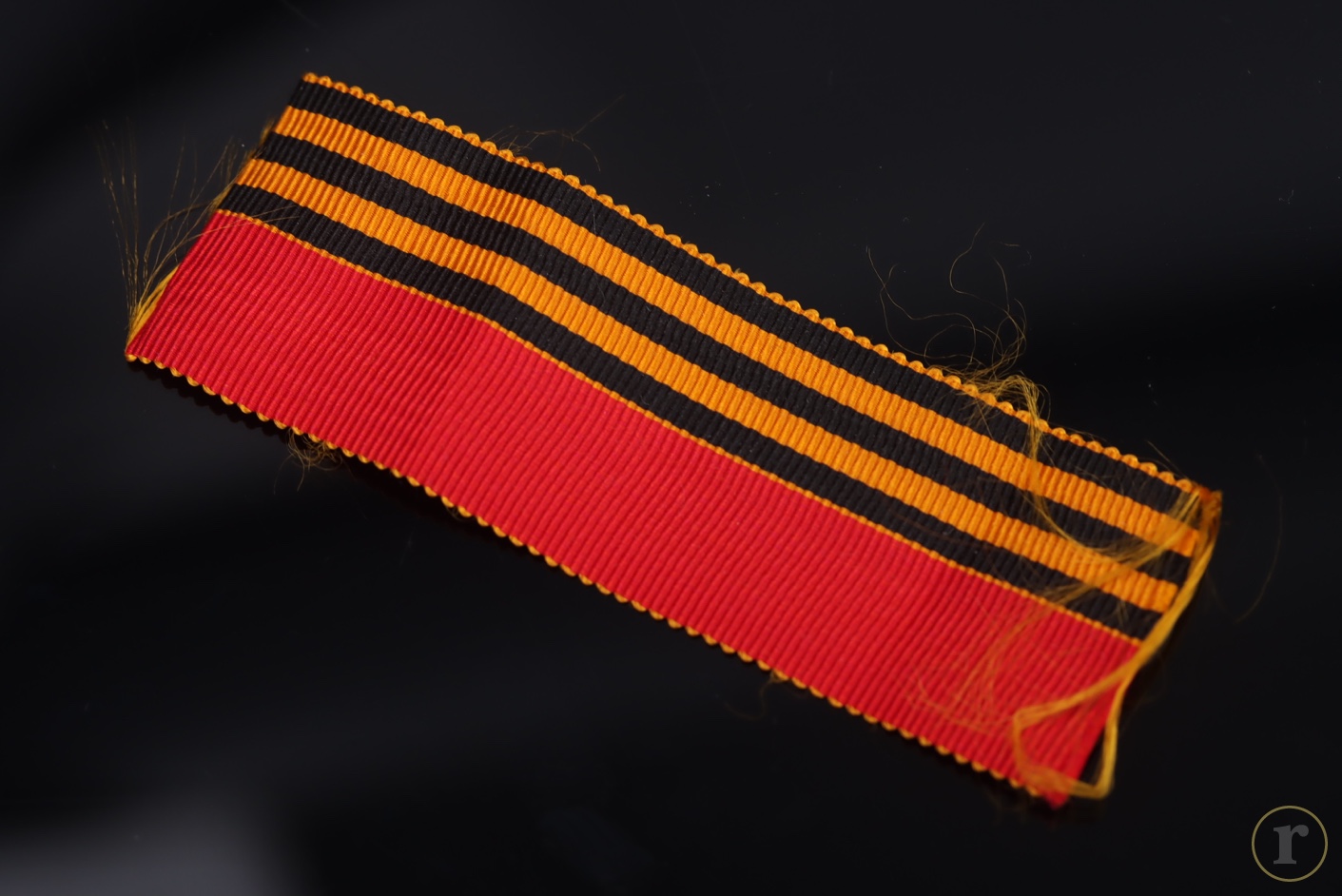NEW UPDATE - MAY 2022
Buy treasures for a reduced Buyer‘s Premium
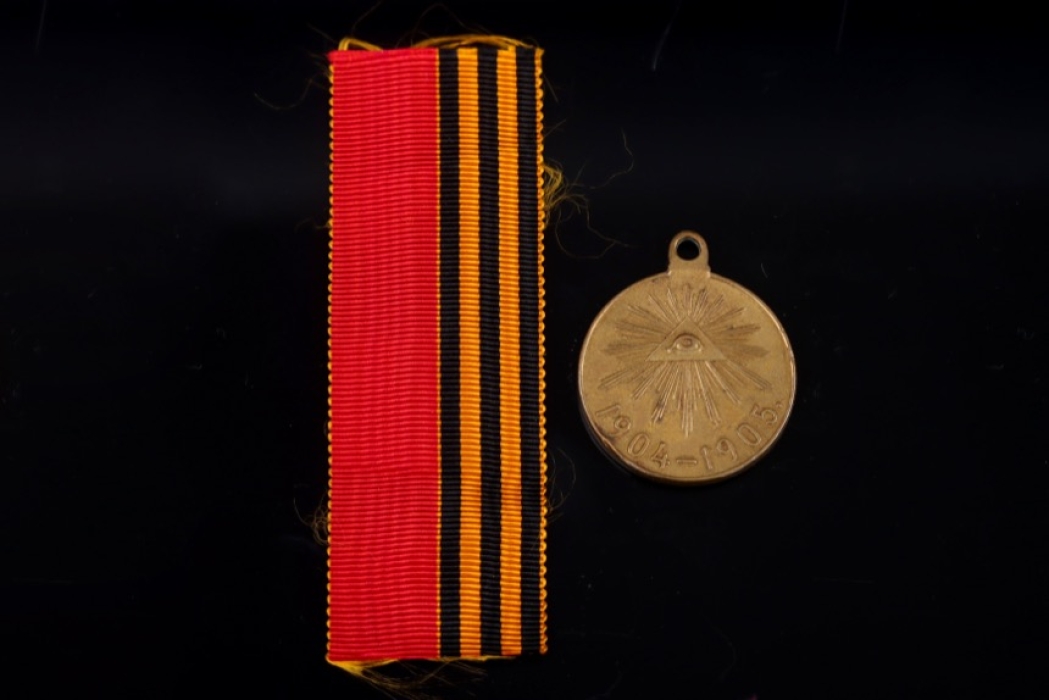
Russia - Medal of the Russo-Japanese War
on a reduced buyer's premium
Own a similar product you want to sell? We are here for you at +49 8541 9053699
-
MEDALNET APPRAISAL SERVICES
-
MEDALNET APPRAISAL SERVICES
MEDALNETSERVICES.COMThis item was examined and validated in cooperation with MEDALNET APPRAISAL SERVICES. Our team’s knowledge base received the most competent boost for orders and decorations for imperial orders and decorations with the help of Bernd Kruse and Andreas M. Schulze Ising. Andreas and Bernd are held in high regard with collectors around the world. With more than 50 years of experience in the field of order decorations and medals, they are seen as competent and independent experts.
GUARANTEEAs usual, we offer a full right of return for originality within the withdrawal period for items that are offered in cooperation with MEDALNET APPRAISAL SERVICES.
MEDALNET APPRAISAL SERVICES
-
-
PAYMENT
-
HOW CAN I PAY FOR MY ORDER?
AUCTIONSYou will receive an e-mail confirming your successful bids the day after the auction has ended. In your personal my ratisbon's you will be able to inform us about your most convenient payment method for this order or tell us about an alternative shipping address.
If we don’t hear from you within 24 hours, we will send an invoice choosing the payment and shipping options which we think are the most comfortable ones to you. If you decide to change your shipping or payment method after receiving your invoice, just drop us a line or visit my ratisbon's/ORDERS for any more details.
SHOP ORDERSChoose your payment method when ordering and submit your order. Once your order has been received we will send an invoice including your shipping costs and your payment instructions.
After receiving the invoice, the order must be paid within 7 days.
Please contact us to discuss layaway options.To learn more about paying at ratisbon's, please see your FAQ pages.
WE ACCEPT FOLLOWING PAYMENT METHODS
-
-
Versand
-
HOW DO YOU SHIP MY NEW TREASURES?
PACKING & TRACKINGWe usually send out orders within 1-3 working days after your payment has been received. In most cases, we are faster than this! We will inform you when your goods are being dispatched and provide a tracking number, In addition, you can always check your order status at my ratisbon's/ORDERS. Delivery times will vary depending upon the delivery destination and type of shipping service you have chosen.
SHIPPING TO ALTERNATIVE ADDRESSIf you prefer to have your order shipped to your work address or a friend during your absence, we will happy to arrange this for you. Send us an email letting us know about your new shipping address and we will be happy to send an updated invoice to you.
OUR LOGISTIC PARTNERS ARE AS FOLLOWS
-
-
OUR GUARANTEE
-
 OUR GUARANTEE!
OUR GUARANTEE!We only offer collectables which to the best of our specialists knowledge are authentic. About 15% of all consignments are returned to the consignor after extensive research due to authenticity issues.
Unlike traditional auction houses we do offer a full right of return. If you are not satisfied with what you won or bought, you may return it within 14 days. Please inform us and we will instruct you on how to return the goods. For more information, please visit FAQ pages.
Important note: Cancelling bids after an auction may disappoint the consignor, who like you is a collector. This situation is easy to avoid. We encourage you not to bid on any collectable if you are unsure if it fits into your collection. Ask us to cancel your bid 24 hours prior to the end of an auction to avoid this situation.
-
COUNTRY Imperial Germany
DIMENSIONS 33.8 x 28.2 mm
WEIGHT 14.3 g
EAN 2000000635989
PERIOD until 1918
COUNTRY Imperial Germany
MATERIAL bronze
DIMENSIONS 33.8 x 28.2 mm
MAKER
WEIGHT 14.3 g
COUNTRY Imperial Germany
LOT 71-1226
DIMENSIONS 33.8 x 28.2 mm
EAN 2000000635989
MAKER
WEIGHT 14.3 g
Russia - Medal of the Russo-Japanese War
Description
A Russo-Japanese War Medal in light bronze. Comes with an original piece of ribbon. Very good condition.
The Russo-Japanese War Medal or Medal in Memory of the Russo-Japanese War was a medal issued by the Russian Empire to those who had fought in the Russo-Japanese War and to nurses, medics, priest and other civilians who had distinguished themselves during combat operations. It was established on 21 January 1906 by Nicholas II of Russia and was initially intended to be awarded as follows:
- The silver medal is awarded to the following persons who were permanently or temporarily in Port Arthur and its fortified area in the period after the Jin-Zhou battle (May 12, 1904) until the end of the siege (December 20, 1904): 1). To all ranks of the military and naval departments, the border guards and the Kwantung squads of volunteers. 2). Ranks of other departments, if they were in Port Arthur, during the siege, according to the duties of the service. 3). Priests, doctors and other medical officials, orderlies and sisters of mercy who served in the military and naval departments, in the Red Cross Society and in other medical institutions that provided assistance to sick and wounded soldiers, and 4). Residents of Port Arthur, who participated in the defense of this city.
- The light bronze medal is awarded to the following categories of persons, if they participated during 1904-1905 in one or more battles against the Japanese on land or sea: 1). Generals, officers and lower ranks of the military and naval departments, as well as the ranks of the State Militia, Border Guards and volunteers who were in the troops and special squads. 2). In general, all class and medical ranks, priests, orderlies and sisters of mercy, as well as persons who do not belong to the military rank, if during the battle they performed their duties with parts of the troops and detachments, as well as on the ships of the fleet that took part in it. 3). Persons of all classes who were awarded the insignia of the Military Order or a medal with the inscription “for bravery”.
- A dark bronze medal is assigned to all who did not take part in the battles, but are in the service in the active armies and in the institutions attached to them, as well as in units Offices and institutions of the military and naval departments located during the war - from January 26, 1904 to December 1, 1905, i.e., on the day the peace treaty was ratified, in the Far East and along the Siberian and Samara-Zlatoust railways, in areas declared under martial law, namely: 1). To all ranks in general: military, naval, border guards and militia. 2) Priests, doctors and other medical officials, orderlies and sisters of mercy who served in the military or naval departments, in the border guards, the Red Cross Society and in all medical institutions that provided assistance to the sick and wounded in the area of military operations; persons who do not belong to a military rank, if these persons were on duty with the troops and medical institutions. 3). Various ranks of the military, maritime and civil departments, as well as female persons who were at various departments and institutions for service, as well as seconded to their locations. 4). Freely hired servants from retired and reserve lower ranks and those from civilians who did not belong to the military rank, who were with the troops who directly acted against the enemy, who showed military distinctions, and in general to persons of all classes who during the war with Japan had any special merits, according to the award of these persons by the authorities of those troops and institutions in which they were at that time <...> are not entitled to receive <...> medals: a). those under trial or investigation, if, at the end of the proceedings against them, they will be subject to exclusion from the military or naval departments, and b). contracted scribblers and civilian employees.
Condition
2-
